

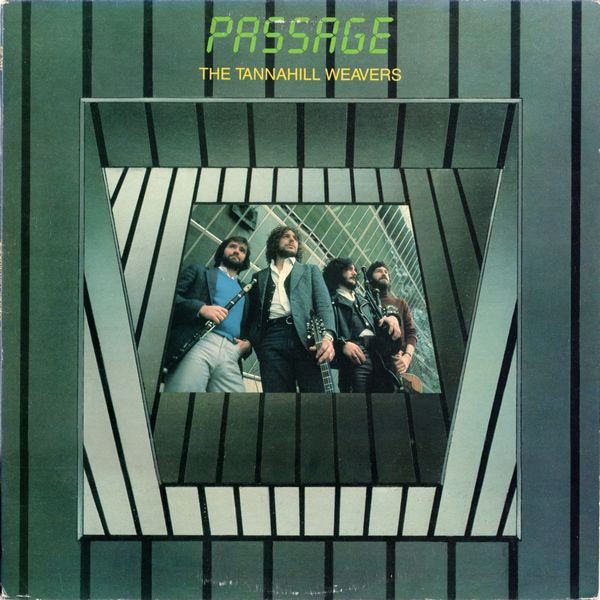 |
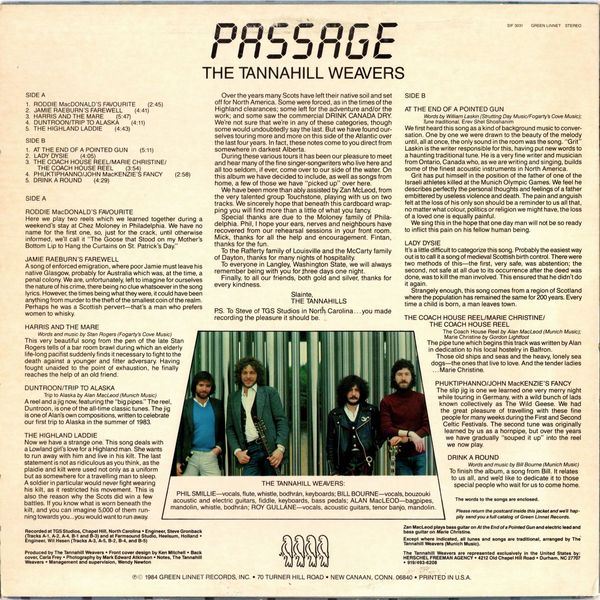
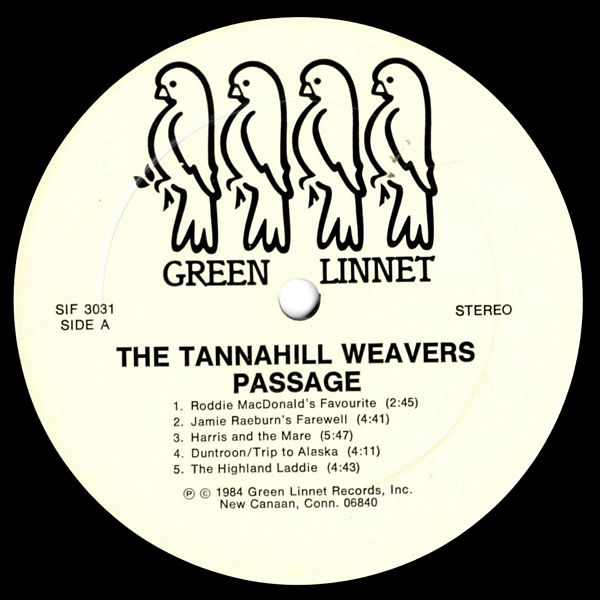
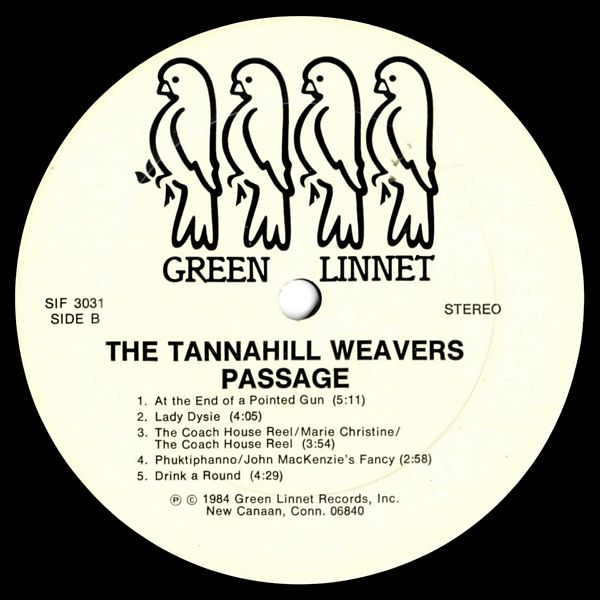
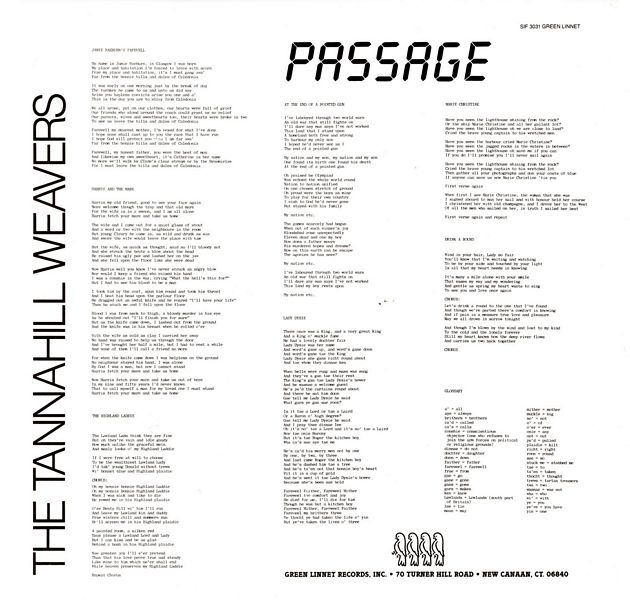
|
Sleeve Notes
Over the years many Scots have left their native soil and set off for North America. Some were forced, as in the times of the Highland clearances; some left for the adventure and, or the work; and some saw the commercial DRINK CANADA DRY. We're not sure that we're in any of these categories, though some would undoubtedly say the last. But we have found ourselves touring more and more on this side of the Atlantic over the last four years. In fact, these notes come to you direct from somewhere in darkest Alberta.
During these various tours it has been our pleasure to meet and hear many of the fine singer-songwriters who live here and all too seldom, if ever, come over to our side of the water. On this album we have decided to include, as well as songs from home, a few of those we have "picked up" over here.
We have been more that ably assisted by Zan MacLeod, from the very talented group Touchstone, playing with us on two tracks. We sincerely hope that beneath this cardboard wrapping you will find more than a little of what you fancy.
Special thanks are due to the Moloney family of Philadelphia. Phil, I hope your ears, nerves and neighbors have recovered from our rehearsal sessions in your front room. Mick, thanks for all the help and encouragement. Fintan, thanks for the fun.
To the Rafferty family of Louisville and the McCarty family of Dayton, thanks for many nights of hospitality.
To everyone in Langley, Washington state, we will always remember being with you for three days one night.
Finally, to all our friends, both gold and silver, thanks for every kindness.
Slaínte,
The Tannahills
PS: To Steve of TGS Studios in North Carolina … you made recording the pleasure it should be.
Roddie MacDonald's Favourite — Here we play two reels which we learned together during a weekend's stay at Chez Moloney in Philadelphia. We have no name for the first one, so, just for the crack, until otherwise informed, we'll call it "The Goose that Stood on my Mother's Bottom Lip to Hang the Curtains on St. Patrick's Day."
Jamie Raeburn's Farewell — A song of enforced emigration, where poor Jamie must leave his native Glasgow, probably for Australia which was, at the time, a penal colony. We are, unfortunately, left to imagine for ourselves the nature of his crime, there being no clue whatsoever in the song lyrics. However, the times being what they were, it could have been anything from murder to the theft of the smallest coin of the realm. Perhaps he was a Scottish pervert — that's a man who prefers women to whisky.
Harris and the Mare — This very beautiful song from the pen of the late Stan Rogers tells of a bar room brawl during which an elderly life-long pacifist suddenly finds it necessary to fight to the death against a younger and fitter adversary. Having fought unaided to the point of exhaustion, he finally reaches the help of an old friend.
Duntroon & Trip To Alaska — A reel and a jig now, featuring the "big pipes." The reel, Duntroon, is one of the all-time classic tunes. The jig is one of Alan's own compositions, written to celebrate our first trip to Alaska in the summer of 1983.
The Highland Laddie — Now we have a strange one. This song deals with a Lowland girl's love for a Highland man. She wants to run away with him and live in his kilt. The last statement is not as ridiculous as you think, as the plaidie and kilt were used not only as a uniform but as somewhere for a travelling man to sleep. A soldier in particular would never fight wearing his kilt, as it restricted his movement. This is also the reason why the Scots did win a few battles. If you know what is worn beneath the kilt, and you can imagine 5,000 of them running towards you … you would want to run away.
At the End of a Pointed Gun — We first heard this song as a kind of background music to conversation. One by one we were drawn to the beauty of the melody until, all at once, the only sound in the room was the song. "Grit" Laskin is the writer responsible for this, having put new words to a haunting traditional tune. He is a very fine writer and musician from Ontario, Canada who, as we are writing and singing, builds some of the finest acoustic instruments in North America.
Grit has put himself in the position of the father of one of the Israeli athletes killed at the Munich Olympic Games. We feel he describes perfectly the personal thoughts and feelings of a father embittered by useless violence and death. The pain and anguish felt at the loss of his only son should be a reminder to us all that, no matter what colour, politics or religion we might have, the loss of a loved one is equally painful.
We sing this in the hope that one day man will not be so ready to inflict this pain on his fellow human being.
Lady Dysie — It's a little difficult to categorize this song. Probably the easiest way out is to call it a song of medieval Scottish birth control. There were two methods of this — the first, very safe, was abstention; the second, not safe at all due to its occurrence after the deed was done, was to kill the man involved. This ensured that he didn't do it again.
Strangely enough, this song comes from a region of Scotland where the population has remained the same for 200 years. Every time a child is born, a man leaves town.
The Coach House Reel, Marie Christine & The Coach House Reel — The pipe tune which begins this track was written by Alan in dedication to his local hostelry in Balfron.
Those old ships and seas and the heavy, lonely sea dogs — the ones that live to love. And the tender ladies … Marie Christine.
Phuktiphanno & John Mackenzie's Fancy — The slip jig is one we learned one very merry night while touring in Germany, with a wild bunch of lads known collectively as The Wild Geese. We had the great pleasure of travelling with these fine people for many weeks during the First and Second Celtic Festivals. The second tune was originally learned by us as a hornpipe, but over the years we have gradually "souped it up" into the reel we now play.
Drink A Round — To finish the album, a song from Bill. It relates to us all, and we'd like to dedicate it to those special people who wait for us to come home.